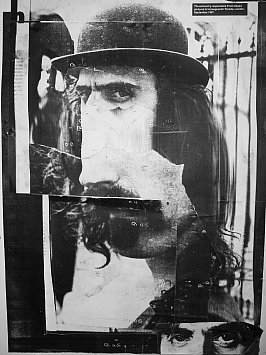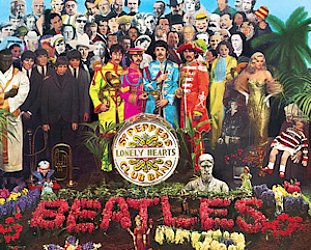Graham Reid | | 2 min read
Frank Zappa: I'm the Slime (from Over-nite Sensation, 1973)

“Frank was my Elvis. His example encouraged me, made me feel it was okay to go my own way, to not do the things the way the authorities told me to. As soon as Bart is able to shave he’ll have a little moustache and goatee just like Frank Zappa’s.”
-- Matt (The Simpsons) Groening
“Frank Zappa was the most untalented bore who ever lived” -- Lou Reed
"I happen to be a composer who sells products in a rock'n'roll medium." -- Frank Zappa
When Frank Zappa died from prostate cancer in December 93, obituary writers in rock magazines had a problem: how to write about somebody who was clearly part of rock culture, but not of it.
Here was a composer whose body of recorded work at the time -- numbering almost 60 albums in fewer than 30 years -- was played by the London Symphony Orchestra and Pierre Boulez, included songs about underwear and dental floss, was merciless and even-handed in its satirising of both the Establishment and the rock counterculture, embraced doo-wop and avant-garde classical music with equal passion, and came proudly announcing “no commercial potential” (taken from the rejection note he received from Clive Davis of Columbia Records).
His songs could be political or pervy and often came with titles such as Botulism on the Hoof, Nasal Retentive Calliope Music and Things That Look Like Meat. Yet Zappa was also deadly serious.
And then there was that damning and oft-repeated quote about rock journalists that many writers have inscribed somewhere behind the frontal lobe as a prompt to conscience: “People who can’t write doing interviews with people who can’t think in order to prepare articles for people who can’t read.”
Frank Zappa: acerbic, prolific, libertarian and agent provocateur beyond categorisation. And then within two years of his death repacked by the truckload.
Rykodisc in association with Zappa’s widow Gail (whom some have described as more difficult to deal with than Yoko Ono when it comes to her advancing her husband’s legacy) started an ambitious and thorough reissue of every Zappa album -- and then some. They are all out there.
The odd thing was that Zappa was dismissive of a legacy.
“It's not important to be remembered,” he said shortly before his death. “The people who worry about being remembered are guys like Reagan and Bush. I don’t care.”
And just how difficult a proposition is Zappa when it comes to shifting units in a reissue programme? Real tough as he acknowledged with typically amusing directness in an interview with Auckland music writer Gary Steel in 1991.
“The average music listener today, what are they looking for? Dance beats, some words that are pretty fucking easy to understand and maybe three notes that you can hum.
“And then of course a real good hairdo and some real nice clothes to look at, and maybe a dance step you can pick up.
“I flunk in every one of those categories.”





david geary - Dec 16, 2008
we remember you frank. weasels rip our flesh that you're not still with us... we got trouble every day
Savepost a comment